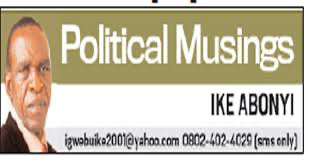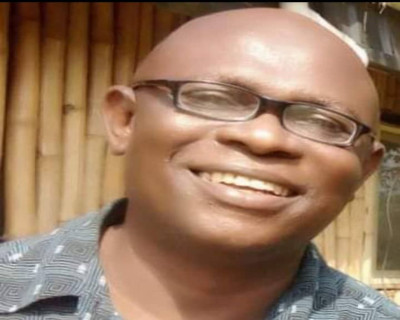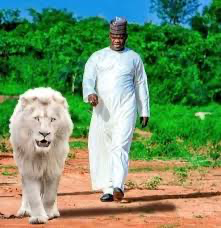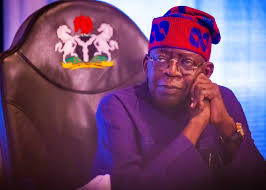New Telegraph Thursday Back Page of February 1st 2024
By ike Abonyi
“It's time to END NIGERIA so that people who want development can go ahead.” – Bishop M.H. Kukah
Above, the Catholic Bishop of Sokoto, Matthew Hassan Kukah, was venting his frustrations about Nigeria, looking back at how things were handled over these six decades of flag independence from colonial rule. The rest of the fiery cleric's speech detailed the turmoil he passed through thinking about Nigeria.
“I have never been as unsure of Nigeria's future as I am now. After independence, to build a great nation, each country went to work. In Nigeria, on the contrary, our people went to pray and fast.
"So, while we were praying, Malaysia came here and took our palm seedling and built a great factory for it.
"While we were praying, Singapore went into investment in technology.
"While we were praying, India went into ICT. While we were praying, China went to massive industrialisation.
"While we were shouting Allahu akbar! UAE went into massive infrastructural development.
"While we were binding and casting Lucifer, Japan went into technological development.
"While we were speaking in tongues, Denmark went into the education of her citizens.
"While we were mounting big speakers in our places of worship, the USA was mounting a man on the moon.
"After our prayers, God, being a wise God, decided to reward us according to our labour. Those who went into industrialisation, technology, infrastructural development, ICT, education...were rewarded accordingly. It’s only wise that God rewards us with our efforts in prayers; our pastors are the richest in the world."
Mulling over those words, my mind raced to Nigeria' North from where Kukah hails. This is politically equipped to take us out of the woods, but has failed over the years. In Nigeria today the geopolitical North is critical to finding solutions to Nigeria’s problems. Why?
If the problem of Nigeria is political leadership as depicted in Chinua Achebe's The Trouble with Nigeria, the region that has the wherewithal to determine Nigeria’s political leadership is the North...is the problem.
The headline of this piece indicates our willingness to fray our nerves. But we must redirect our thoughts about the rubbish we have become. How soon shall we clean the Augean table?
This columnist has many northern friends, having practised journalism there, in both Islamic and Christian-dominated areas. My wife and mother of my children is from the North. Northerners are fantastic to live with...trustworthy in interpersonal relations. That I can vouch for.
However, as a political entity, the North is a complete failure, always unable to turn its potential to gain. The elites' understanding of politics is to grab and hold power for the fun, not the good, of it.
Northern politicians have not empowered their largely impoverished populace. The feudal system prevalent there caters only to a few rich and forgets that the opulent few may end up with poorer neighbours who may be a huge threat. With banditry, this is coming to pass. God forbid!
The easiest way, by any standards, to uplift a people is through education. But the North, over time, has refused to give education deserved priority.
Westerners are what they are today because in his heyday, Chief Obafemi Awolowo threatened to jail parents who restrained children from schooling. Awo should be emulated by northern leaders. The out-of-school children's number in Northern Nigeria today is frightening. A few years ago, the political leaders decided to send them, under the almajiri programme, back to their states of origin instead of providing for them and educating them in school.
This week, we use this space to call a spade by its name and tell the elites of the North they are the trouble with Nigeria. They hold Nigeria back and the Bishop Kukah quote addresses them.
Those opposing our verdict may blame those who started tribal politics, staged the first coup, injected religion into our body politic, military rulers or politicians. All correct, but having identified the problems, why are you unable to tackle them and solve them many decades later? Who is responsible for this? The geopolitical North is largely liable. How?
The blame should also go to other geopolitical areas. They all have their faults but a large part belongs to the North. Why? The North has the wherewithal to get things right but is not doing stuff. In the process, it is the worst hit by the resulting decadence.
When the North is in power, the rulers put off their thinking caps. No thought is spared to help the masses. A few of them dance and swim in power thinking less about development. When they are out, they think about how to regain it and deploy available resources towards that effort. The North has become like the proverbial victorious fighter, holding down his victim, but unable to celebrate because he can’t let go of the victim. An Igbo adage puts it aptly, "Oji Madu n'ala, ji onwe ya," meaning the man holding somebody on the ground is also holding himself.
After eight years in power and (2015 to 2023), just seven months down the line, the elites feel like
the world is upon them. Instead of figuring out how to right past wrongs, they are oiling the machinery to recapture it in 2027. As far as the politicians are concerned, these four years are going to be hell on earth, forgetting that Tinubu is merely using Buhari’s template.
The North has not paused to wonder how the South-East is surviving holding the nation’s economy for decades without political power.
Twenty-twenty-three was a turning point as one man called Peter Obi of the Labour Party brought issue-based campaigns into our polity and opened the eyes of the North to how it has been the gold of the nation. But they were still fixated on the status quo of political power without development, consumption without production, and sharing without contribution and chose instead for a few individuals to mortgage their collective interests with a settlement largesse. The Northern elites who are murmuring that Tinubu is against the region should be bold enough to come out and
account for how they spent the bribe they collected from him on behalf of themselves and the region.
Even before Peter Obi, an eccentric blue-blooded northerner, then Emir of Kano, Lamido Sanusi Lamido, concerned like Bishop Kukah, had begun a crusade aimed at turning the mentality of the people to think of development. They found him odd and threw him away. Among his warnings was that no city like Kano can survive modern times with over three million people homeless and roaming the streets.
Nigeria will turn 64 by this October and the geopolitical north has held power for more than 40 years. Yet it breeds poverty enough to make Nigeria the poverty capital of the world. More than 70 per cent of the 133 million-plus Nigerians living in extreme poverty are northerners.
Sokoto State, the headquarters of the Sultanate, has been among the three poorest states in Nigeria for decades. Zamfara State, with all the rich underground natural resources, is among the three poorest states in the North. Yet, few have made billions mining and killing the natives. Katsina State has produced two Presidents and a Chief of Staff, Supreme Headquarters (Vice President equivalent). Yet, it is today among Nigeria's five poorest states. All these states have produced multi-billionaires on individual bases while their larger population sank deeper into poverty.
The Sokoto Caliphate had been a great Islamic city 50 years before Dubai, the current world’s tourist destination, was created from a desert by fellow Muslims. In the 1970s and 1980s, Kano and Maiduguri were two great Islamic cities, moving at a great speed in development but were halted by the injection of religious crisis that forced many development catalysts to flee.
Is something not fundamentally wrong with a people having political power and breeding poverty simultaneously? Is it not high time critical minds considered other needs of the North that are far more important than holding power? It’s now indisputable that the North does not know what its people need.
According to the International Development Index, population is an asset. Just produce with the labour that exists. The consumers are there.
Fertile land is an asset. Just cultivate it with the cheap labour available, export your products and earn hard money. But that is not happening, the few educated are lining up for the easy job of sharing without development.
If Nigeria’s political leadership recruitment process is to be fingered for these lapses, North should be held responsible because it has always shown at party and national levels that they have the numbers that determine who gets what.
Senator Ali Ndume is already threatening the president with numbers ahead of 2027, not concerned about today. Because his children are involved in the CBN relocation issue. Meanwhile, his constituency in Borno State has been under terror fight since 1999 when he began representing his people.
Also, Hakeem Baba-Ahmad, after all the moralising for the North as their spokesman, is now mum, clearly missing in action. Why not? We know that it’s unethical to talk and eat. What does the North consider before picking leaders? Individual or regional interests? In most cases, what they term regional interests are personal aggrandisement of their leaders.
At the National Assembly, the North has over 60 per cent of the number in the two chambers. What they do not sanction cannot fly no matter how reasonable. To what extent have they utilised this number through reasonable legislation to attenuate the poverty level in the North?
Bishop Kukah as a man of God would not have been speaking in such a frustrating tone, if his region holding the proverbial knife and the yam, had met his expectations.
The northern elites should stand up and decide to save this country and themselves. They can do it first by overhauling their recruitment policy and stop living in denial or waiting for someone to tell them that they look like an unmade bed. God help us.




